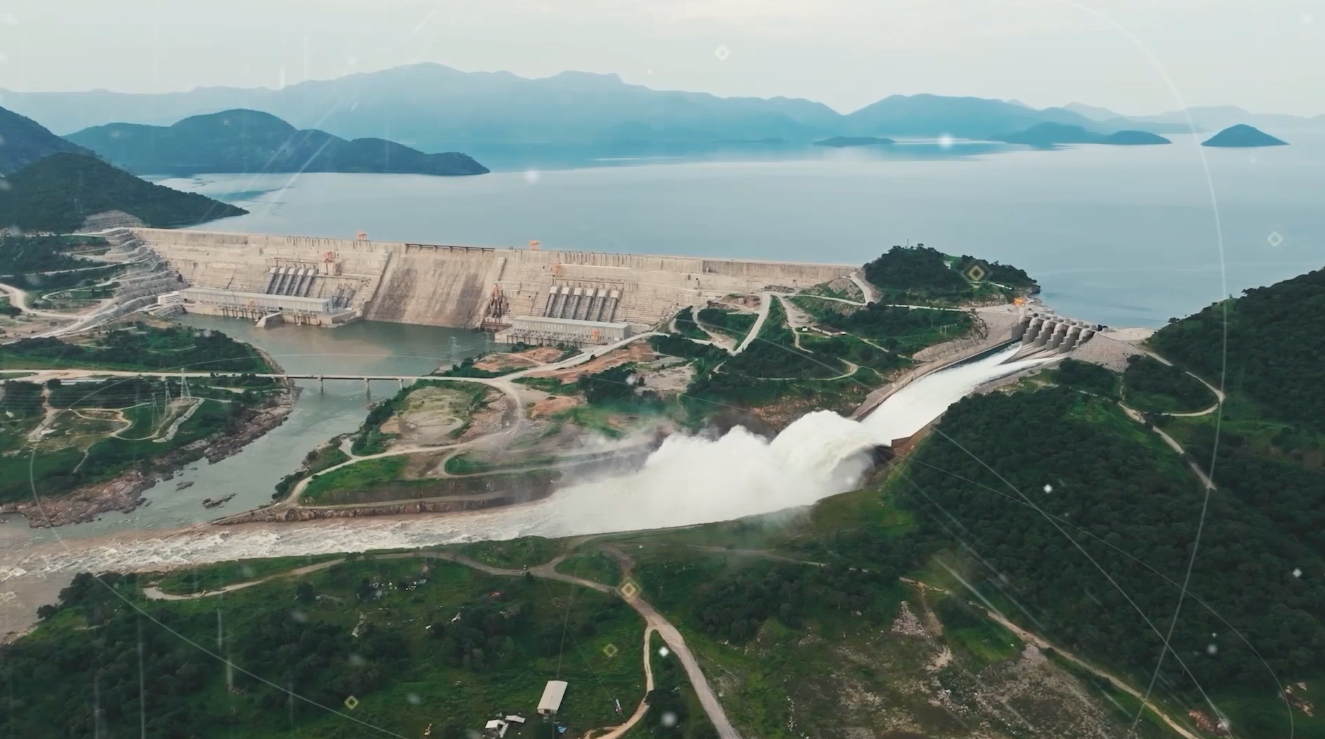Ethiopians Are Thrilled to Celebrate GERD - ENA English
Ethiopians Are Thrilled to Celebrate GERD

By Gezahagn Degefu
Addis Ababa, September 3, 2025 (ENA) -- At the beginning of the Ethiopian New Year (September 2025), Ethiopians are set to celebrate the Grand Ethiopian Renaissance Dam (GERD)—a historic milestone accomplished to generate hydro power. GERD is now Africa’s largest hydroelectric dam, an emblem of Ethiopian ingenuity, determination, and unity. The dam is an expression of pride and a source of inspiration to both Ethiopia and Africa at large.
A foundation stone was laid to commence the construction of GERD on the Abbay River in Guba woreda, Benishangul-Gumuz region of Ethiopia on 2 April 2011.
From the beginning, the dam captured the body and mind of millions of Ethiopians. Funded entirely by domestic resources, without foreign loans, the dam has become a rallying point for patriotism, with citizens at home and abroad buying bonds, donating, and advocating for its success.
Office of the National Council for the Coordination of Public Participation to the Construction of GERD confirmed that the financial backbone of GERD has been the Ethiopian people, describing it as a national development model rooted in self-reliance and collective ownership.
Once fully operational, GERD will generate 5,150 megawatts of electricity. This is a transformative leap for a nation, as nearly half of the rural population of Ethiopia still lacks access to electricity. Beyond lighting homes and powering industries, GERD is central to Ethiopia’s broader vision of industrialization, rural electrification, and regional energy connectivity.
For Ethiopia, GERD is more than hydro power; it embodies the aspiration for economic self-determination. The Abbay River has dawned Ethiopia’s hope to embark on harnessing its natural resources sustainably and equitably. This marks a pivotal shift, not just in infrastructure development, but a turnaround in regional geopolitical dynamics long influenced by outdated, colonial-era water treaties.
From the outset, GERD faced formidable challenges. Persisting with a colonial mindset, against the order of the 21st century, at the expense of Ethiopia, does not hold water.
Ethiopia had been deprived of harnessing its natural resources for centuries. The dream of Ethiopians has come true, having endured to overcome the injustices and sufferings for millennia.
Over the last seven years, Prime Minister Abiy Ahmed has navigated intense international pressure during critical phases of the dam’s filling, while maintaining a firm commitment to diplomacy and cooperation.
In a gesture of regional cooperation, Prime Minister Abiy extended an official invitation to the Nile riparian states to be part of the upcoming inauguration. “We believe in shared water, shared energy, and shared prosperity,” he declared.
GERD’s impact will reverberate across East Africa. Ethiopia exports electricity to Sudan, Kenya, Djibouti, and others, fostering economic interdependence in the Horn of Africa. Additionally, the dam is expected to enhance water management and boost food security across the region. Its vast reservoir also holds potential for eco-tourism, fisheries, and hospitality, creating thousands of jobs.
“GERD is a project for Africa. It offers flood control, reduced evaporation, and fosters cross-border energy connectivity, a symbol of hope and cooperation, Gideon Asfaw, a member of the GERD Negotiation Team once emphasized.
As the inauguration nears, the GERD stands not only as a feat of engineering but as a declaration of national purpose. By controlling its internal resources through GERD and seeking external connectivity through trade and diplomacy, Ethiopia is reshaping its role in the Horn of Africa, paving the way for shared regional aspirations.
Yet Ethiopia has maintained that the dam would not harm downstream nations. Designed to regulate the river’s seasonal flow, GERD aims to mitigate destructive floods and ensure a more predictable water supply.
Ethiopia and other Nile Basin states initiated the Cooperative Framework Agreement (CFA) to pave for equitable water use. This is a millstone not only to use the Nile waters but also to prevent riverside environmental degradation.
GERD’s completion is more than an infrastructure milestone; it is the realization of a collective dream, a legacy of unity, and a promise to future generations. For Ethiopia, GERD is a rise of a self-sufficient, forward-looking, poised to lead by example in innovation, resilience, and cooperation.